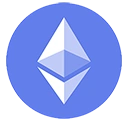The Ethereum community is a diverse and vibrant ecosystem of developers, users, investors, and enthusiasts who contribute to the growth and evolution of the Ethereum blockchain. This community plays a crucial role in shaping the future of Ethereum, driving innovation, and fostering collaboration among its members.
Key Components of the Ethereum Community
- Developers: Ethereum developers are responsible for building decentralized applications (dApps), smart contracts, and various tools that enhance the Ethereum ecosystem. They contribute to the Ethereum codebase, participate in governance discussions, and work on scaling solutions.
- Users: Users of Ethereum include individuals who interact with dApps, hold Ether (ETH), and participate in decentralized finance (DeFi), non-fungible tokens (NFTs), and other blockchain-based services. Their feedback and experiences help shape the direction of the ecosystem.
- Investors: Investors in the Ethereum community include those who buy and hold ETH as an investment, venture capitalists funding projects, and individuals participating in initial coin offerings (ICOs) or token sales. Their financial support is vital for the development of new projects.
- Educators and Advocates: Many community members focus on educating others about Ethereum, blockchain technology, and cryptocurrencies. They host workshops, write articles, and create content to raise awareness and understanding of Ethereum.
- Organizations and Foundations: The Ethereum Foundation and other organizations support the development of the Ethereum ecosystem by providing funding, resources, and infrastructure. They also organize events and conferences to foster collaboration and knowledge sharing.
Community Governance and Decision-Making
The Ethereum community engages in governance through various channels, including:
- Ethereum Improvement Proposals (EIPs): EIPs are design documents providing information to the Ethereum community about new features or changes. They serve as a way for developers to propose and discuss improvements to the Ethereum protocol.
- Forums and Social Media: The Ethereum community actively discusses proposals and ideas on platforms like the Ethereum Magicians forum, Reddit, and Twitter. These discussions help gauge community sentiment and gather feedback.
- Meetups and Conferences: Events such as Devcon and local meetups allow community members to connect, share ideas, and collaborate on projects. These gatherings foster a sense of belonging and encourage networking.
Sample Code: Simple Community Feedback Form
Below is a simple HTML form that could be used by members of the Ethereum community to provide feedback on a dApp or project:
<!DOCTYPE html>
<html lang="en">
<head>
<meta charset="UTF-8">
<meta name="viewport" content="width=device-width, initial-scale=1.0">
<title>Ethereum Community Feedback Form</title>
</head>
<body>
<h1>Ethereum Community Feedback Form</h1>
<form action="/submit-feedback" method="POST">
<label for="name">Name:</label>
<input type="text" id="name" name="name" required><br>
<label for="email">Email:</label>
<input type="email" id="email" name="email" required><br>
<label for="feedback">Feedback:</label><br>
<textarea id="feedback" name="feedback" rows="4" required></textarea><br>
<input type="submit" value="Submit Feedback">
</form>
</body>
</html>
Conclusion
The Ethereum community is a vital part of the blockchain ecosystem, driving innovation, collaboration, and growth. By engaging with various stakeholders, from developers to users, the community continues to shape the future of Ethereum and promote the adoption of decentralized technologies.

